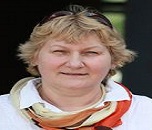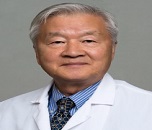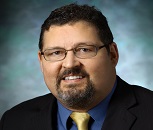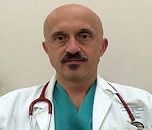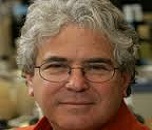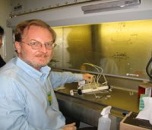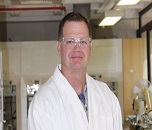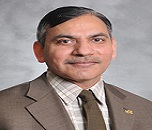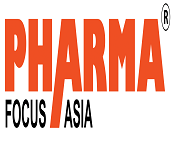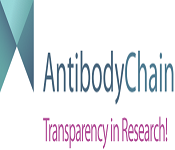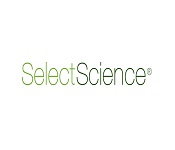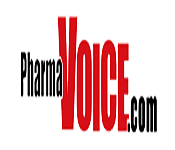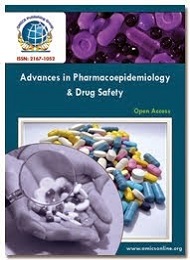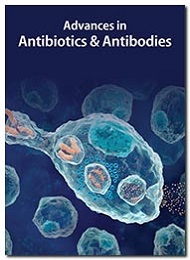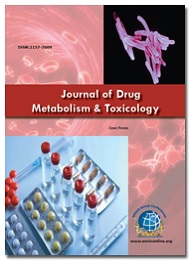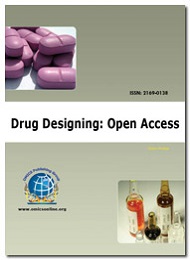Theme: The Future Of Antibiotics: Key Opportunities & Emerging Therapies
Antibiotics 2017
After a successful conference of Antibiotics 2016, we are currently bringing forth “3rd World Congress and Exhibition on Antibiotics and Antibiotic Resistance” (Antibiotics 2017) slated on July 31- Aug 01, 2017 at Milan, Italy. Antibiotics 2017 aims to gather the most elegant societies and industries along with the renowned and honorable persons from top universities across the globe.
Antibiotics 2017 covers various aspects of Antibiotics, The Emergence of Antimicrobial resistance, Different Types of Antibiotics, Applications of Antibiotics, Antibiotic Resistance: Opportunities and Challenges, Antibiotics for Various Diseases and Infections, Antibiotic Prophylaxis, Antibiotics: In Pregnancy and Lactation, Antibiotics in Different Industries, Modern Antibiotics: Emerging trends, Barriers and Opportunities, Drug Discovery and Novel Delivery Technologies, Antibiotics for Emerging and Re-emerging Diseases, Micro Organisms in Recent Drug Discovery, Clinical Trials of Antibiotics, Antibiotics and Mechanism, Antibiotic Regulatory Affairs and Antibiotics Market Analysis and Business Opportunities.
Track 1: Antibiotics
Antibiotics are a type of antimicrobials that are used in treatment and prevention of bacterial infections. They may kill or inhibit the growth of bacteria. Many antibiotics are also effective against protozoans and fungi; some are toxic to humans and animals also, even when given in therapeutic dosage. Antibiotics are not effective against viruses such as common cold or influenza, and may be harmful when taken inappropriately. Physicians must ensure the patient has a bacterial infection before prescribing antibiotics.
Relevant Conferences:
7th World Congress on Clinical Microbiology, February 27-28, 2017 Amsterdam, Netherlands; Global Pharmaceutical Microbiology Conference, June 19-20, 2017 London, UK; Annual Conference on Antimicrobials and Drug Resistance, August 24-25, 2017 Toronto, Canada; 2nd International Conference on Infectious Diseases & Diagnostic Microbiology, Sep 11-13, 2017 Dallas, USA; 4th World Congress and Expo on Applied Microbiology, Sep 18-20, 2017 Atlanta, USA; 2nd International Conference on Antimicrobial Agents and Chemotherapy, October 19-20, 2017 Atlanta, USA; 2nd International Symposium, Alternatives to Antibiotics, Challenges and Solutions in Animal Production, December 13-15, 2016 Paris, France; Microbiome in Health and Disease, February 5-9, 2017 Colorado, USA; Innovative Strategies in the Research and Development of Antimicrobial Peptides to Increase Therapeutic Potential, February 25-26, 2017 Ventura, CA; How Animals and Plants Use Antimicrobial Peptides, How They Work, and How to Design Interesting New Molecules, February 26 - March 3, 2017 Ventura, CA; 19th International Conference on Antimicrobials, March 9-10, 2017 Miami, USA; BSAC Spring Conference: The Global Challenge of Multi-drug Resistant Gram Negative Bacterial Infections, 14th March 2017, Queen Elizabeth II Conference Centre, London; Solutions for Drug-Resistant Infections Conference, April 3-5, 2017 Brisbane, Australia; ASM Conference on Innovative Microbial Ecology for Mitigation of Antibiotic Resistance and Bacterial Diseases, March 22–25, 2017 Crystal City, VA; 27th European Congress of Clinical Microbiology and Infectious Diseases, April 22- 25 2017 Vienna, Austria; 20th Annual MAD-ID Meeting – THE Antimicrobial Stewardship Meeting™, May 10-13, 2017 Orlando, USA
Related Societies:
The World Alliance Against Antibiotic Resistance (WAAAR), Antibiotic Research UK (ANTRUK), Alliance for the Prudent Use of Antibiotics (APUA), Centers for Disease Control and Prevention (CDC), Center for a Livable Future (CLF), U.S. Food and Drug Administration (FDA), BEAM Alliance (Biotechs from Europe innovating in anti-microbial resistance), ReAct – Action on Antibiotics, Transatlantic task force on urgent antimicrobial resistance (TATFAR), Global Antibiotic Resistance Partnership (GARP)
Track 2: The Emergence of Antimicrobial Resistance
Antibiotic resistance invoke especially to the resistance to antibiotics that occurs in common bacteria that cause infection. The easy approach and capability of Antibiotics led to overuse in live-stock raising promotes bacteria to flourish resistance. This led to comprehensive problems with antibiotic resistance. World Health Organization (WHO) classified antimicrobial resistance as a serious hazard and no longer a indicator for the future. Antibiotic resistance is now among every part of the world and its stirring everyone irrespective to the age. When infections become resistant to first-line drugs, more costly therapies must be used. A longer duration of illness and treatment, often in hospitals, increases health care costs as well as the financial burden on families and societies. To help prevent the development of current and future bacterial resistance, it is essential to prescribe antibiotics according to the principles of antimicrobial stewardship, such as specify antibiotics only when they are needed.
Relevant Conferences:
Global Pharmaceutical Microbiology Conference, June 19-20, 2017 London, UK; Annual Conference on Antimicrobials and Drug Resistance, August 24-25, 2017 Toronto, Canada; 2nd International Conference on Infectious Diseases & Diagnostic Microbiology, Sep 11-13, 2017 Dallas, USA; 4th World Congress and Expo on Applied Microbiology, Sep 18-20, 2017 Atlanta, USA; 2nd International Conference on Antimicrobial Agents and Chemotherapy, October 19-20, 2017 Atlanta, USA; BSAC Spring Conference: The Global Challenge of Multi-drug Resistant Gram Negative Bacterial Infections, 14th March 2017, Queen Elizabeth II Conference Centre, London; Solutions for Drug-Resistant Infections Conference, April 3-5, 2017 Brisbane, Australia; ASM Conference on Innovative Microbial Ecology for Mitigation of Antibiotic Resistance and Bacterial Diseases, March 22–25, 2017 Crystal City, VA; 27th European Congress of Clinical Microbiology and Infectious Diseases, April 22- 25 2017 Vienna, Austria; 20th Annual MAD-ID Meeting – THE Antimicrobial Stewardship Meeting™, May 10-13, 2017 Orlando, USA; ASM Microbe 2017, June 1-5, 2017 New Orleans, USA; 2nd International Caparica Conference in Antibiotic Resistance, June 12-15, 2017 Lisbon, Portugal; World Anti-Microbial Resistance Congress USA 2017, September 14-15, 2017 Washington, USA; 11th International Symposium on the Biology of Acinetobacter, September 20-22, 2017 Seville, Spain; Host Directed Therapeutic Strategies to Combat Infection and Reduce Emergence of Drug Resistance Conference, Sep 25- 28 2017, Arizona USA; 19th International Conference on Antibiotics, Bioactive Compounds and Medicine, October 10-11, 2017 New York, USA
Related Societies:
British Pharmacological Society (BPS), American Society for Microbiology (ASM), Infectious Diseases Society of America (IDSA), The American Society of Health-System Pharmacists, The Society of Infectious Diseases Pharmacists, Animal Welfare Approved (AWA), American Academy of Pediatrics, American Medical Association, Compassion in World Farming (CIWF), Center for Science in the Public Interest (CSPI), Keep Antibiotics Working (KAW), Institute for Agriculture and Trade Policy (IATP), Healthy Food Action
Track 3: Antibiotic Resistance: Opportunities and Challenges
Certain bacterial infections now oppose all antibiotics. The resistance problem may be reversible, but only if society begins to acknowledge how the drugs affect "good" bacteria as well as "bad". Historically, most antibacterials were used in hospitals, where they were integrated into surgical clothes and soaps to limit the spread of infection. More recently, however, those substances (including triclosan, triclocarbon and such quaternary ammonium compounds as benzalkonium chloride) have been mixed into lotions, dish-washing detergents and soaps meant for general consumers. They have also been impregnated into such items as cutting boards, toys, high chairs and mattress pads.
Relevant Conferences:
Annual Conference on Antimicrobials and Drug Resistance, August 24-25, 2017 Toronto, Canada; 2nd International Conference on Infectious Diseases & Diagnostic Microbiology, Sep 11-13, 2017 Dallas, USA; 4th World Congress and Expo on Applied Microbiology, Sep 18-20, 2017 Atlanta, USA; 2nd International Conference on Antimicrobial Agents and Chemotherapy, October 19-20, 2017 Atlanta, USA; ASM Microbe 2017, June 1-5, 2017 New Orleans, USA; 2nd International Caparica Conference in Antibiotic Resistance, June 12-15, 2017 Lisbon, Portugal; World Anti-Microbial Resistance Congress USA 2017, September 14-15, 2017 Washington, USA; 11th International Symposium on the Biology of Acinetobacter, September 20-22, 2017 Seville, Spain; Host Directed Therapeutic Strategies to Combat Infection and Reduce Emergence of Drug Resistance Conference, Sep 25- 28 2017, Arizona USA; 19th International Conference on Antibiotics, Bioactive Compounds and Medicine, October 10-11, 2017 New York, USA
Related Societies:
Antibiotic Research UK (ANTRUK), Alliance for the Prudent Use of Antibiotics (APUA), Centers for Disease Control and Prevention (CDC), Center for a Livable Future (CLF), U.S. Food and Drug Administration (FDA), BEAM Alliance (Biotechs from Europe innovating in anti-microbial resistance), ReAct – Action on Antibiotics, Transatlantic task force on urgent antimicrobial resistance (TATFAR), Global Antibiotic Resistance Partnership (GARP), British Pharmacological Society (BPS)
Track 4: Different Types of Antibiotics
Antibiotics are also noted as antibacterials, are types of medications that destroy or slow down the growth of bacteria. Alexander Fleming discovered first penicillin, the first chemical compound with antibiotic properties. Some of the common antibiotics are Aminoglycosides, Cephalosporins, Carbapenems, Macrolides, Penicillin, Quinolones, Sulfonamides and, Tetracyclines etc. General fundamentals of antibiotic prescribing are use: First-line antibiotics first, Reserve broad spectrum antibiotics for marked circumstances only, prescribe antibiotics for bacterial infections if Symptoms are significant or severe.
Relevant Conferences:
2nd International Conference on Infectious Diseases & Diagnostic Microbiology, Sep 11-13, 2017 Dallas, USA; 4th World Congress and Expo on Applied Microbiology, Sep 18-20, 2017 Atlanta, USA; 2nd International Conference on Antimicrobial Agents and Chemotherapy, October 19-20, 2017 Atlanta, USA; 2nd International Symposium, Alternatives to Antibiotics, Challenges and Solutions in Animal Production, December 13-15, 2016 Paris, France; Microbiome in Health and Disease, February 5-9, 2017 Colorado, USA; Innovative Strategies in the Research and Development of Antimicrobial Peptides to Increase Therapeutic Potential, February 25-26, 2017 Ventura, CA; How Animals and Plants Use Antimicrobial Peptides, How They Work, and How to Design Interesting New Molecules, February 26 - March 3, 2017 Ventura, CA; 19th International Conference on Antimicrobials, March 9-10, 2017 Miami, USA; BSAC Spring Conference: The Global Challenge of Multi-drug Resistant Gram Negative Bacterial Infections, 14th March 2017, Queen Elizabeth II Conference Centre, London; Solutions for Drug-Resistant Infections Conference, April 3-5, 2017 Brisbane, Australia
Related Societies:
Alliance for the Prudent Use of Antibiotics (APUA), Centers for Disease Control and Prevention (CDC), Center for a Livable Future (CLF), U.S. Food and Drug Administration (FDA), BEAM Alliance (Biotechs from Europe innovating in anti-microbial resistance), ReAct – Action on Antibiotics, Transatlantic task force on urgent antimicrobial resistance (TATFAR), Global Antibiotic Resistance Partnership (GARP), British Pharmacological Society (BPS), American Society for Microbiology (ASM), Infectious Diseases Society of America (IDSA)
Track 5: Applications of Antibiotics
Choice of relevant antibiotics is presently based on individual patient need. Preservation of bacterial sensitivity needs perceptive of how antibiotics select resistance. ‘Ten commandments’ which might be considered carefully when a preference has to be made for antibiotic prescribing. The compelling importance of the fact that all healthcare personnel should take ownership of the need to specify accordingly and to practice effective infection control. A realization that antibiotics may not be competent for the tasks required of them and eventually, with widespread resistance, may be incapable of the task they do today.
Relevant Conferences:
7th World Congress on Clinical Microbiology, February 27-28, 2017 Amsterdam, Netherlands; Global Pharmaceutical Microbiology Conference, June 19-20, 2017 London, UK; Annual Conference on Antimicrobials and Drug Resistance, August 24-25, 2017 Toronto, Canada; 2nd International Conference on Infectious Diseases & Diagnostic Microbiology, Sep 11-13, 2017 Dallas, USA; 4th World Congress and Expo on Applied Microbiology, Sep 18-20, 2017 Atlanta, USA; 2nd International Conference on Antimicrobial Agents and Chemotherapy, October 19-20, 2017 Atlanta, USA; 2nd International Symposium, Alternatives to Antibiotics, Challenges and Solutions in Animal Production, December 13-15, 2016 Paris, France; Microbiome in Health and Disease, February 5-9, 2017 Colorado, USA; Innovative Strategies in the Research and Development of Antimicrobial Peptides to Increase Therapeutic Potential, February 25-26, 2017 Ventura, CA; How Animals and Plants Use Antimicrobial Peptides, How They Work, and How to Design Interesting New Molecules, February 26 - March 3, 2017 Ventura, CA; 19th International Conference on Antimicrobials, March 9-10, 2017 Miami, USA; BSAC Spring Conference: The Global Challenge of Multi-drug Resistant Gram Negative Bacterial Infections, 14th March 2017, Queen Elizabeth II Conference Centre, London; Solutions for Drug-Resistant Infections Conference, April 3-5, 2017 Brisbane, Australia; ASM Conference on Innovative Microbial Ecology for Mitigation of Antibiotic Resistance and Bacterial Diseases, March 22–25, 2017 Crystal City, VA; 27th European Congress of Clinical Microbiology and Infectious Diseases, April 22- 25 2017 Vienna, Austria; 20th Annual MAD-ID Meeting – THE Antimicrobial Stewardship Meeting™, May 10-13, 2017 Orlando, USA
Related Societies:
Centers for Disease Control and Prevention (CDC), Center for a Livable Future (CLF), U.S. Food and Drug Administration (FDA), BEAM Alliance (Biotechs from Europe innovating in anti-microbial resistance), ReAct – Action on Antibiotics, Transatlantic task force on urgent antimicrobial resistance (TATFAR), Global Antibiotic Resistance Partnership (GARP), British Pharmacological Society (BPS), American Society for Microbiology (ASM), Infectious Diseases Society of America (IDSA), The American Society of Health-System Pharmacists
Track 6: Antibiotics for Various Diseases and Infections
Antibiotics are amidst the most regularly recommended medications in modern medicine. Antibiotics are useless against viral infections. When you take antibiotics, follow the guidelines carefully. It is important to finish your medicine even if you feel improved. If you stop treatment too soon, some bacteria may survive and re-infect you. Do not save antibiotics for later or use someone else's prescription.
Relevant Conferences:
Global Pharmaceutical Microbiology Conference, June 19-20, 2017 London, UK; Annual Conference on Antimicrobials and Drug Resistance, August 24-25, 2017 Toronto, Canada; 2nd International Conference on Infectious Diseases & Diagnostic Microbiology, Sep 11-13, 2017 Dallas, USA; 4th World Congress and Expo on Applied Microbiology, Sep 18-20, 2017 Atlanta, USA; 2nd International Conference on Antimicrobial Agents and Chemotherapy, October 19-20, 2017 Atlanta, USA; BSAC Spring Conference: The Global Challenge of Multi-drug Resistant Gram Negative Bacterial Infections, 14th March 2017, Queen Elizabeth II Conference Centre, London; Solutions for Drug-Resistant Infections Conference, April 3-5, 2017 Brisbane, Australia; ASM Conference on Innovative Microbial Ecology for Mitigation of Antibiotic Resistance and Bacterial Diseases, March 22–25, 2017 Crystal City, VA; 27th European Congress of Clinical Microbiology and Infectious Diseases, April 22- 25 2017 Vienna, Austria; 20th Annual MAD-ID Meeting – THE Antimicrobial Stewardship Meeting™, May 10-13, 2017 Orlando, USA; ASM Microbe 2017, June 1-5, 2017 New Orleans, USA; 2nd International Caparica Conference in Antibiotic Resistance, June 12-15, 2017 Lisbon, Portugal; World Anti-Microbial Resistance Congress USA 2017, September 14-15, 2017 Washington, USA; 11th International Symposium on the Biology of Acinetobacter, September 20-22, 2017 Seville, Spain; Host Directed Therapeutic Strategies to Combat Infection and Reduce Emergence of Drug Resistance Conference, Sep 25- 28 2017, Arizona USA; 19th International Conference on Antibiotics, Bioactive Compounds and Medicine, October 10-11, 2017 New York, USA
Related Societies:
Center for a Livable Future (CLF), U.S. Food and Drug Administration (FDA), BEAM Alliance (Biotechs from Europe innovating in anti-microbial resistance), ReAct – Action on Antibiotics, Transatlantic task force on urgent antimicrobial resistance (TATFAR), Global Antibiotic Resistance Partnership (GARP), British Pharmacological Society (BPS), American Society for Microbiology (ASM), Infectious Diseases Society of America (IDSA), The American Society of Health-System Pharmacists, The Society of Infectious Diseases Pharmacists
Track 7: Antibiotic Prophylaxis
Antimicrobial prophylaxis is generally used by clinicians for the prevention of numerous infectious diseases. Optimal antimicrobial agents for prophylaxis should be nontoxic, inexpensive, bactericidal and active against the typical pathogens that can motive surgical site infection postoperatively. To maximize its effectiveness, intravenous perioperative prophylaxis should be carried out within 30 to 60 minutes before the surgical incision. Antimicrobial prophylaxis should be of short time to downturn toxicity and antimicrobial resistance and to reduce cost.
Relevant Conferences:
Annual Conference on Antimicrobials and Drug Resistance, August 24-25, 2017 Toronto, Canada; 2nd International Conference on Infectious Diseases & Diagnostic Microbiology, Sep 11-13, 2017 Dallas, USA; 4th World Congress and Expo on Applied Microbiology, Sep 18-20, 2017 Atlanta, USA; 2nd International Conference on Antimicrobial Agents and Chemotherapy, October 19-20, 2017 Atlanta, USA; ASM Microbe 2017, June 1-5, 2017 New Orleans, USA; 2nd International Caparica Conference in Antibiotic Resistance, June 12-15, 2017 Lisbon, Portugal; World Anti-Microbial Resistance Congress USA 2017, September 14-15, 2017 Washington, USA; 11th International Symposium on the Biology of Acinetobacter, September 20-22, 2017 Seville, Spain; Host Directed Therapeutic Strategies to Combat Infection and Reduce Emergence of Drug Resistance Conference, Sep 25- 28 2017, Arizona USA; 19th International Conference on Antibiotics, Bioactive Compounds and Medicine, October 10-11, 2017 New York, USA
Related Societies:
U.S. Food and Drug Administration (FDA), BEAM Alliance (Biotechs from Europe innovating in anti-microbial resistance), ReAct – Action on Antibiotics, Transatlantic task force on urgent antimicrobial resistance (TATFAR), Global Antibiotic Resistance Partnership (GARP), British Pharmacological Society (BPS), American Society for Microbiology (ASM), Infectious Diseases Society of America (IDSA), The American Society of Health-System Pharmacists, The Society of Infectious Diseases Pharmacists, Animal Welfare Approved (AWA), American Academy of Pediatrics
Track 8: Antibiotics: In Pregnancy and Lactation
Antibiotics are frequently recommended during pregnancy. The specific medication must be chosen carefully, however. Some antibiotics are prescribed to take during pregnancy, while others are not. Safety depends on various factors, including the type of antibiotic, when in pregnancy you take the antibiotic, how much you take and for how long. Antibiotics normally advised safe during pregnancy: Ampicillin, Amoxicillin, Clindamycin, Erythromycin, Penicillin, Nitrofurantoin. Despite there's no direct clue that these antibiotics cause birth defects, additional research is needed. In the interim, use of these medications is still assured in some cases.
Relevant Conferences:
Global Pharmaceutical Microbiology Conference, June 19-20, 2017 London, UK; Annual Conference on Antimicrobials and Drug Resistance, August 24-25, 2017 Toronto, Canada; 2nd International Conference on Infectious Diseases & Diagnostic Microbiology, Sep 11-13, 2017 Dallas, USA; 4th World Congress and Expo on Applied Microbiology, Sep 18-20, 2017 Atlanta, USA; 2nd International Conference on Antimicrobial Agents and Chemotherapy, October 19-20, 2017 Atlanta, USA; BSAC Spring Conference: The Global Challenge of Multi-drug Resistant Gram Negative Bacterial Infections, 14th March 2017, Queen Elizabeth II Conference Centre, London; Solutions for Drug-Resistant Infections Conference, April 3-5, 2017 Brisbane, Australia; ASM Conference on Innovative Microbial Ecology for Mitigation of Antibiotic Resistance and Bacterial Diseases, March 22–25, 2017 Crystal City, VA; 27th European Congress of Clinical Microbiology and Infectious Diseases, April 22- 25 2017 Vienna, Austria; 20th Annual MAD-ID Meeting – THE Antimicrobial Stewardship Meeting™, May 10-13, 2017 Orlando, USA; ASM Microbe 2017, June 1-5, 2017 New Orleans, USA; 2nd International Caparica Conference in Antibiotic Resistance, June 12-15, 2017 Lisbon, Portugal; World Anti-Microbial Resistance Congress USA 2017, September 14-15, 2017 Washington, USA; 11th International Symposium on the Biology of Acinetobacter, September 20-22, 2017 Seville, Spain; Host Directed Therapeutic Strategies to Combat Infection and Reduce Emergence of Drug Resistance Conference, Sep 25- 28 2017, Arizona USA; 19th International Conference on Antibiotics, Bioactive Compounds and Medicine, October 10-11, 2017 New York, USA
Related Societies:
BEAM Alliance (Biotechs from Europe innovating in anti-microbial resistance), ReAct – Action on Antibiotics, Transatlantic task force on urgent antimicrobial resistance (TATFAR), Global Antibiotic Resistance Partnership (GARP), British Pharmacological Society (BPS), American Society for Microbiology (ASM), Infectious Diseases Society of America (IDSA), The American Society of Health-System Pharmacists, The Society of Infectious Diseases Pharmacists, Animal Welfare Approved (AWA), American Academy of Pediatrics, American Medical Association, Compassion in World Farming (CIWF)
Track 9: Antibiotics in Different Industries
Antibiotics must be used accordingly in humans and animals because both uses share to the emergence, persistence, and escalation of resistant bacteria. Resistant bacteria in food-producing animals are of particular concern. Food animals play as a source of resistant pathogens and resistance mechanisms that can directly or indirectly result in antibiotic resistant infections in humans. Resistant bacteria may be transmitted to humans through the foods we eat. Some bacteria have turned resistant to more than one sort of antibiotic, which makes it more difficult to treat the infections they cause. Sustaining the efficiency of antibiotic drugs is vital to insulating human and animal health.
Relevant Conferences:
7th World Congress on Clinical Microbiology, February 27-28, 2017 Amsterdam, Netherlands; Global Pharmaceutical Microbiology Conference, June 19-20, 2017 London, UK; Annual Conference on Antimicrobials and Drug Resistance, August 24-25, 2017 Toronto, Canada; 2nd International Conference on Infectious Diseases & Diagnostic Microbiology, Sep 11-13, 2017 Dallas, USA; 4th World Congress and Expo on Applied Microbiology, Sep 18-20, 2017 Atlanta, USA; 2nd International Conference on Antimicrobial Agents and Chemotherapy, October 19-20, 2017 Atlanta, USA; 2nd International Symposium, Alternatives to Antibiotics, Challenges and Solutions in Animal Production, December 13-15, 2016 Paris, France; Microbiome in Health and Disease, February 5-9, 2017 Colorado, USA; Innovative Strategies in the Research and Development of Antimicrobial Peptides to Increase Therapeutic Potential, February 25-26, 2017 Ventura, CA; How Animals and Plants Use Antimicrobial Peptides, How They Work, and How to Design Interesting New Molecules, February 26 - March 3, 2017 Ventura, CA; 19th International Conference on Antimicrobials, March 9-10, 2017 Miami, USA; BSAC Spring Conference: The Global Challenge of Multi-drug Resistant Gram Negative Bacterial Infections, 14th March 2017, Queen Elizabeth II Conference Centre, London; Solutions for Drug-Resistant Infections Conference, April 3-5, 2017 Brisbane, Australia; ASM Conference on Innovative Microbial Ecology for Mitigation of Antibiotic Resistance and Bacterial Diseases, March 22–25, 2017 Crystal City, VA; 27th European Congress of Clinical Microbiology and Infectious Diseases, April 22- 25 2017 Vienna, Austria; 20th Annual MAD-ID Meeting – THE Antimicrobial Stewardship Meeting™, May 10-13, 2017 Orlando, USA
Related Societies:
ReAct – Action on Antibiotics, Transatlantic task force on urgent antimicrobial resistance (TATFAR), Global Antibiotic Resistance Partnership (GARP), British Pharmacological Society (BPS), American Society for Microbiology (ASM), Infectious Diseases Society of America (IDSA), The American Society of Health-System Pharmacists, The Society of Infectious Diseases Pharmacists, Animal Welfare Approved (AWA), American Academy of Pediatrics, American Medical Association, Compassion in World Farming (CIWF), Center for Science in the Public Interest (CSPI)
Track 11: Drug Discovery and Novel Delivery Technologies
In the prior most drugs have been invented either by identifying the active ingredient from traditional remedies or by serendipitous discovery. A new access has been to recognize how disease and infection are controlled at the molecular and physiological level and to mark specific entities based on this knowledge. The process of drug discovery involves the identification of candidates, characterization, screening, synthesis, and assays for therapeutic efficacy. Evolution of an existing drug molecule from a ordinary form to a novel delivery system can significantly improve its performance in terms of patient compliance, efficacy and safety. These days, drug delivery companies are engaged in the development of numerous platform technologies to get ambitious advantage, extend patent life, and increase market share of their products. Formerly a compound has displayed its value in these tests; it will begin the process of drug development prior to clinical trials.
Relevant Conferences:
2nd International Conference on Infectious Diseases & Diagnostic Microbiology, Sep 11-13, 2017 Dallas, USA; 4th World Congress and Expo on Applied Microbiology, Sep 18-20, 2017 Atlanta, USA; 2nd International Conference on Antimicrobial Agents and Chemotherapy, October 19-20, 2017 Atlanta, USA; 2nd International Symposium, Alternatives to Antibiotics, Challenges and Solutions in Animal Production, December 13-15, 2016 Paris, France; Microbiome in Health and Disease, February 5-9, 2017 Colorado, USA; Innovative Strategies in the Research and Development of Antimicrobial Peptides to Increase Therapeutic Potential, February 25-26, 2017 Ventura, CA; How Animals and Plants Use Antimicrobial Peptides, How They Work, and How to Design Interesting New Molecules, February 26 - March 3, 2017 Ventura, CA; 19th International Conference on Antimicrobials, March 9-10, 2017 Miami, USA; BSAC Spring Conference: The Global Challenge of Multi-drug Resistant Gram Negative Bacterial Infections, 14th March 2017, Queen Elizabeth II Conference Centre, London; Solutions for Drug-Resistant Infections Conference, April 3-5, 2017 Brisbane, Australia
Related Societies:
Transatlantic task force on urgent antimicrobial resistance (TATFAR), Global Antibiotic Resistance Partnership (GARP), British Pharmacological Society (BPS), American Society for Microbiology (ASM), Infectious Diseases Society of America (IDSA), The American Society of Health-System Pharmacists, The Society of Infectious Diseases Pharmacists, Animal Welfare Approved (AWA), American Academy of Pediatrics, American Medical Association, Compassion in World Farming (CIWF), Center for Science in the Public Interest (CSPI), Keep Antibiotics Working (KAW), Institute for Agriculture and Trade Policy (IATP)
Track 12: Antibiotics for Emerging and Re-emerging Diseases
New diseases are originating globally and old diseases are re-emerging as Infectious agents evolve or spread, and as changes occur in conservation, socio-economic conditions, and population patterns. Likewise, many diseases thought to be decently controlled appear to be making a revival. In developed countries, public health measures such as sewage treatment, vaccination programs, sanitation and access to good medical care-including a wide range of antibiotics-have virtually disposed “traditional” diseases such as tuberculosis, diphtheria and whooping cough.
Relevant Conferences:
Annual Conference on Antimicrobials and Drug Resistance, August 24-25, 2017 Toronto, Canada; 2nd International Conference on Infectious Diseases & Diagnostic Microbiology, Sep 11-13, 2017 Dallas, USA; 4th World Congress and Expo on Applied Microbiology, Sep 18-20, 2017 Atlanta, USA; 2nd International Conference on Antimicrobial Agents and Chemotherapy, October 19-20, 2017 Atlanta, USA; ASM Microbe 2017, June 1-5, 2017 New Orleans, USA; 2nd International Caparica Conference in Antibiotic Resistance, June 12-15, 2017 Lisbon, Portugal; World Anti-Microbial Resistance Congress USA 2017, September 14-15, 2017 Washington, USA; 11th International Symposium on the Biology of Acinetobacter, September 20-22, 2017 Seville, Spain; Host Directed Therapeutic Strategies to Combat Infection and Reduce Emergence of Drug Resistance Conference, Sep 25- 28 2017, Arizona USA; 19th International Conference on Antibiotics, Bioactive Compounds and Medicine, October 10-11, 2017 New York, USA
Related Societies:
Global Antibiotic Resistance Partnership (GARP), British Pharmacological Society (BPS), American Society for Microbiology (ASM), Infectious Diseases Society of America (IDSA), The American Society of Health-System Pharmacists, The Society of Infectious Diseases Pharmacists, Animal Welfare Approved (AWA), American Academy of Pediatrics, American Medical Association, Compassion in World Farming (CIWF), Center for Science in the Public Interest (CSPI), Keep Antibiotics Working (KAW), Institute for Agriculture and Trade Policy (IATP), Healthy Food Action
Track 13: Micro Organisms in Recent Drug Discovery
Environmental microbes are a leading source of drug discovery, and several microbial products ( anti-tumour products, antibiotics, immunosuppressants and others) are used frequently for human therapies. Most of these products were accessed from cultivable (<1%) environmental microbes, means that the large number of microbes were not targeted for drug discovery. With the onset of new and emerging technologies, we are poised to harvest novel drugs from the so-called 'uncultivable' microbes. Multidisciplinary way of linking different technologies can assist and reform drug discovery from uncultivable microbes and inspect the current cramp of technologies and scenario to swamped such constraints that might further expand the promise of drugs from environmental microbes.
Relevant Conferences:
2nd International Conference on Infectious Diseases & Diagnostic Microbiology, Sep 11-13, 2017 Dallas, USA; 4th World Congress and Expo on Applied Microbiology, Sep 18-20, 2017 Atlanta, USA; 2nd International Conference on Antimicrobial Agents and Chemotherapy, October 19-20, 2017 Atlanta, USA; 2nd International Symposium, Alternatives to Antibiotics, Challenges and Solutions in Animal Production, December 13-15, 2016 Paris, France; Microbiome in Health and Disease, February 5-9, 2017 Colorado, USA; Innovative Strategies in the Research and Development of Antimicrobial Peptides to Increase Therapeutic Potential, February 25-26, 2017 Ventura, CA; How Animals and Plants Use Antimicrobial Peptides, How They Work, and How to Design Interesting New Molecules, February 26 - March 3, 2017 Ventura, CA; 19th International Conference on Antimicrobials, March 9-10, 2017 Miami, USA; BSAC Spring Conference: The Global Challenge of Multi-drug Resistant Gram Negative Bacterial Infections, 14th March 2017, Queen Elizabeth II Conference Centre, London; Solutions for Drug-Resistant Infections Conference, April 3-5, 2017 Brisbane, Australia
Related Societies:
The World Alliance Against Antibiotic Resistance (WAAAR), Antibiotic Research UK (ANTRUK), Alliance for the Prudent Use of Antibiotics (APUA), Centers for Disease Control and Prevention (CDC), Center for a Livable Future (CLF), U.S. Food and Drug Administration (FDA), BEAM Alliance (Biotechs from Europe innovating in anti-microbial resistance), ReAct – Action on Antibiotics, Transatlantic task force on urgent antimicrobial resistance (TATFAR), Global Antibiotic Resistance Partnership (GARP), British Pharmacological Society (BPS)
Track 14: Clinical Trials of Antibiotics
Prescribing doctors are, progressively, using clinical trial data as a major source of information for evidence-based medicine for the remedy of infectious diseases, as in other clinical disciplines. However, it may be difficult to excerpt from these data the material that is needed for the management of the individual patient. At the same time, clinical trial testimony have been used, probably satisfactorily, in the process of drug registration, and the pharmaceutical industry has spent progressively large amount of money to satisfy the needs of this process. In the face of all these problems, switch in the way antibiotic clinical trials are designed and performed are clearly necessary, although this must not disturb the balance so far as to restore them less useful for those who currently derive greatest benefit from them.
Relevant Conferences:
2nd International Conference on Infectious Diseases & Diagnostic Microbiology, Sep 11-13, 2017 Dallas, USA; 4th World Congress and Expo on Applied Microbiology, Sep 18-20, 2017 Atlanta, USA; 2nd International Conference on Antimicrobial Agents and Chemotherapy, October 19-20, 2017 Atlanta, USA; 2nd International Symposium, Alternatives to Antibiotics, Challenges and Solutions in Animal Production, December 13-15, 2016 Paris, France; Microbiome in Health and Disease, February 5-9, 2017 Colorado, USA; Innovative Strategies in the Research and Development of Antimicrobial Peptides to Increase Therapeutic Potential, February 25-26, 2017 Ventura, CA; How Animals and Plants Use Antimicrobial Peptides, How They Work, and How to Design Interesting New Molecules, February 26 - March 3, 2017 Ventura, CA; 19th International Conference on Antimicrobials, March 9-10, 2017 Miami, USA; BSAC Spring Conference: The Global Challenge of Multi-drug Resistant Gram Negative Bacterial Infections, 14th March 2017, Queen Elizabeth II Conference Centre, London; Solutions for Drug-Resistant Infections Conference, April 3-5, 2017 Brisbane, Australia
Related Societies:
Alliance for the Prudent Use of Antibiotics (APUA), Centers for Disease Control and Prevention (CDC), Center for a Livable Future (CLF), U.S. Food and Drug Administration (FDA), BEAM Alliance (Biotechs from Europe innovating in anti-microbial resistance), ReAct – Action on Antibiotics, Transatlantic task force on urgent antimicrobial resistance (TATFAR), Global Antibiotic Resistance Partnership (GARP), British Pharmacological Society (BPS), American Society for Microbiology (ASM), Infectious Diseases Society of America (IDSA), The American Society of Health-System Pharmacists, The Society of Infectious Diseases Pharmacists, Animal Welfare Approved (AWA), American Academy of Pediatrics
Track 15: Antibiotics and Mechanism of Action
Antibacterial action customarily falls within one of four mechanisms, three of which involve the inhibition or regulation of enzymes tangled in cell wall biosynthesis, nucleic acid metabolism and repair, or protein synthesis, respectively. The fourth mechanism associates the interruption of membrane structure. Many of these cellular functions targeted by antibiotics are most effective in multiplying cells. Since there is often overlap in these functions between eukaryotic mammalian cells and prokaryotic bacterial cells, it is not surprising that some antibiotics have also been found to be useful as anticancer agents.
Relevant Conferences:
Annual Conference on Antimicrobials and Drug Resistance, August 24-25, 2017 Toronto, Canada; 2nd International Conference on Infectious Diseases & Diagnostic Microbiology, Sep 11-13, 2017 Dallas, USA; 4th World Congress and Expo on Applied Microbiology, Sep 18-20, 2017 Atlanta, USA; 2nd International Conference on Antimicrobial Agents and Chemotherapy, October 19-20, 2017 Atlanta, USA; ASM Microbe 2017, June 1-5, 2017 New Orleans, USA; 2nd International Caparica Conference in Antibiotic Resistance, June 12-15, 2017 Lisbon, Portugal; World Anti-Microbial Resistance Congress USA 2017, September 14-15, 2017 Washington, USA; 11th International Symposium on the Biology of Acinetobacter, September 20-22, 2017 Seville, Spain; Host Directed Therapeutic Strategies to Combat Infection and Reduce Emergence of Drug Resistance Conference, Sep 25- 28 2017, Arizona USA; 19th International Conference on Antibiotics, Bioactive Compounds and Medicine, October 10-11, 2017 New York, USA
Related Societies:
Centers for Disease Control and Prevention (CDC), Center for a Livable Future (CLF), U.S. Food and Drug Administration (FDA), BEAM Alliance (Biotechs from Europe innovating in anti-microbial resistance), ReAct – Action on Antibiotics, Transatlantic task force on urgent antimicrobial resistance (TATFAR), Global Antibiotic Resistance Partnership (GARP), British Pharmacological Society (BPS), American Society for Microbiology (ASM), Infectious Diseases Society of America (IDSA), The American Society of Health-System Pharmacists, The Society of Infectious Diseases Pharmacists, Animal Welfare Approved (AWA), American Academy of Pediatrics, American Medical Association, Compassion in World Farming (CIWF), Center for Science in the Public Interest (CSPI)
Track 16: Antibiotic Regulatory Affairs
Regulatory affairs (RA), are also called as government affairs, is a profession within regulated industries, such as medical devices, pharmaceuticals etc. Regulatory affairs also have a very specific meaning within the healthcare industries (medical devices, functional foods, biologics and pharmaceuticals). Regulatory affairs (medical affairs) professionals (aka regulatory professionals) generally have the duty for the following general areas: Ensuring that the companies obey with all of the regulations and laws pertaining to their business.
Relevant Conferences:
Global Pharmaceutical Microbiology Conference, June 19-20, 2017 London, UK; Annual Conference on Antimicrobials and Drug Resistance, August 24-25, 2017 Toronto, Canada; 2nd International Conference on Infectious Diseases & Diagnostic Microbiology, Sep 11-13, 2017 Dallas, USA; 4th World Congress and Expo on Applied Microbiology, Sep 18-20, 2017 Atlanta, USA; 2nd International Conference on Antimicrobial Agents and Chemotherapy, October 19-20, 2017 Atlanta, USA; BSAC Spring Conference: The Global Challenge of Multi-drug Resistant Gram Negative Bacterial Infections, 14th March 2017, Queen Elizabeth II Conference Centre, London; Solutions for Drug-Resistant Infections Conference, April 3-5, 2017 Brisbane, Australia; ASM Conference on Innovative Microbial Ecology for Mitigation of Antibiotic Resistance and Bacterial Diseases, March 22–25, 2017 Crystal City, VA; 27th European Congress of Clinical Microbiology and Infectious Diseases, April 22- 25 2017 Vienna, Austria; 20th Annual MAD-ID Meeting – THE Antimicrobial Stewardship Meeting™, May 10-13, 2017 Orlando, USA; ASM Microbe 2017, June 1-5, 2017 New Orleans, USA; 2nd International Caparica Conference in Antibiotic Resistance, June 12-15, 2017 Lisbon, Portugal; World Anti-Microbial Resistance Congress USA 2017, September 14-15, 2017 Washington, USA; 11th International Symposium on the Biology of Acinetobacter, September 20-22, 2017 Seville, Spain; Host Directed Therapeutic Strategies to Combat Infection and Reduce Emergence of Drug Resistance Conference, Sep 25- 28 2017, Arizona USA; 19th International Conference on Antibiotics, Bioactive Compounds and Medicine, October 10-11, 2017 New York, USA
Related Societies:
U.S. Food and Drug Administration (FDA), BEAM Alliance (Biotechs from Europe innovating in anti-microbial resistance), ReAct – Action on Antibiotics, Transatlantic task force on urgent antimicrobial resistance (TATFAR), Global Antibiotic Resistance Partnership (GARP), British Pharmacological Society (BPS), American Society for Microbiology (ASM), Infectious Diseases Society of America (IDSA), The American Society of Health-System Pharmacists, The Society of Infectious Diseases Pharmacists, Animal Welfare Approved (AWA), American Academy of Pediatrics, American Medical Association, Compassion in World Farming (CIWF), Center for Science in the Public Interest (CSPI), Keep Antibiotics Working (KAW), Institute for Agriculture and Trade Policy (IATP), Healthy Food Action
Track 17: Antibiotics: Market Analysis and Business Opportunities
The global antibiotics market was valued at $39.6 billion in 2013 and is expected to reach $41.2 billion by 2018, at a CAGR of 0.8%. From, 2005 this market is seen to grow at an annual rate of 6.6% until 2011. There are many companies producing antibiotics these days and there are many other antibiotics present in the market such as aminoglycoside antibiotics and it cap around 79% of the global demand. Moreover, the other antibiotics such as penicillin have 8%, streptomycin 1%, chloramnphenicol 1 %, tetracyclines 4%, erythromycin has 7%, market.
Relevant Conferences:
7th World Congress on Clinical Microbiology, February 27-28, 2017 Amsterdam, Netherlands; Global Pharmaceutical Microbiology Conference, June 19-20, 2017 London, UK; Annual Conference on Antimicrobials and Drug Resistance, August 24-25, 2017 Toronto, Canada; 2nd International Conference on Infectious Diseases & Diagnostic Microbiology, Sep 11-13, 2017 Dallas, USA; 4th World Congress and Expo on Applied Microbiology, Sep 18-20, 2017 Atlanta, USA; 2nd International Conference on Antimicrobial Agents and Chemotherapy, October 19-20, 2017 Atlanta, USA; 2nd International Symposium, Alternatives to Antibiotics, Challenges and Solutions in Animal Production, December 13-15, 2016 Paris, France; Microbiome in Health and Disease, February 5-9, 2017 Colorado, USA; Innovative Strategies in the Research and Development of Antimicrobial Peptides to Increase Therapeutic Potential, February 25-26, 2017 Ventura, CA; How Animals and Plants Use Antimicrobial Peptides, How They Work, and How to Design Interesting New Molecules, February 26 - March 3, 2017 Ventura, CA; 19th International Conference on Antimicrobials, March 9-10, 2017 Miami, USA; BSAC Spring Conference: The Global Challenge of Multi-drug Resistant Gram Negative Bacterial Infections, 14th March 2017, Queen Elizabeth II Conference Centre, London; Solutions for Drug-Resistant Infections Conference, April 3-5, 2017 Brisbane, Australia; ASM Conference on Innovative Microbial Ecology for Mitigation of Antibiotic Resistance and Bacterial Diseases, March 22–25, 2017 Crystal City, VA; 27th European Congress of Clinical Microbiology and Infectious Diseases, April 22- 25 2017 Vienna, Austria; 20th Annual MAD-ID Meeting – THE Antimicrobial Stewardship Meeting™, May 10-13, 2017 Orlando, USA;
Related Societies:
ReAct – Action on Antibiotics, Transatlantic task force on urgent antimicrobial resistance (TATFAR), Global Antibiotic Resistance Partnership (GARP), British Pharmacological Society (BPS), American Society for Microbiology (ASM), Infectious Diseases Society of America (IDSA), The American Society of Health-System Pharmacists, The Society of Infectious Diseases Pharmacists, Animal Welfare Approved (AWA), American Academy of Pediatrics, American Medical Association, Compassion in World Farming (CIWF), Center for Science in the Public Interest (CSPI)
ConferenceSeries invites all the participants from all over the world to attend ‘3rd World Congress and Exhibition on Antibiotics and Antibiotic Resistance' to be held on July 31-Aug 01, 2017 at Milan, Italy which includes prompt keynote presentations, Oral talks, Poster presentations and Exhibitions.
ConferenceSeries organizes a conference series of 1000+ Global Events inclusive of 1000+ Conferences, 500+ Upcoming and Previous Symposiums and Workshops in USA, Europe & Asia with support from 1000 more scientific societies and publishes 700+ Open access Journals which contains over 50000 eminent personalities, reputed scientists as editorial board members.
Why to attend ?
Antibiotics 2017 is a platform to discuss and learn about the latest advancements in the field of Antibiotics and Antibiotic Resistance as the world’s consideration turned regarding the urgency of new antibiotics as the antimicrobial resistance is growing day by day. Many developed nations and International health organizations are trying to focus of the current situation and making new policies to prevent the adverse effects of Antibiotic resistance.
This 2-day conference gathers researchers, academia, labs, Drug Manufacturers, government agencies, health professionals, hospitals, young investigators, pharma and labs and presents their opinions through key notes, and case study presentations. This conference lays a platform for all the researchers working in the field of Antibiotics to know the latest developments and the current situation of the Antibiotic resistance problem.
You will meet!
- Food Safety Experts
- Alliances of antibiotics
- Public Health Preparedness Sectors
- Commercialization
- Strategic Drug Development
- Scientific Business Communications
- Medical Affairs and Networking
- Executive Council of Global
- Directors of Pharma Industries
- Antibiotics Associations & Societies
- Business Entrepreneurs
- Antibiotics Researchers
Summary
Antibiotics 2017 welcomes attendees, presenters, and exhibitors from all over the world to Manchester, UK. We are delighted to invite you all to attend and register for the “3rd World Congress & Exhibition on Antibiotics and Antibiotic Resistance” (Antibiotics 2017) which is going to be held during July 31- Aug 01, 2017 at Milan, Italy. The organizing committee is gearing up for an exciting and informative conference program including plenary lectures, symposia, workshops on a variety of topics, poster presentations and various programs for participants from all over the world. We invite you to join us at the Antibiotics 2017, where you will be sure to have a meaningful experience with scholars from around the world. All the members of Antibiotics 2017 organizing committee look forward to meet you at Milan, Italy.
Importance and Scope:
Antibiotics play a crucial role in the health of both human beings and animals. The purpose of the Antibiotic research is to stimulate discussion of new ideas and/or find new perspectives on the future of Antibiotics as there are no major Antibiotics had been discovered during the past few years. Moreover Antimicrobial resistance threatens the effective prevention and treatment of an ever-increasing range of infections caused by bacteria, parasites, viruses and fungi. It is an increasingly serious threat to global public health that requires action across all government sectors and society. Antimicrobial resistance is present in all parts of the world. New resistance mechanisms emerge and spread globally. Infections caused by resistant microorganisms often fail to respond to the standard treatment, resulting in prolonged illness, higher health care expenditures, and a greater risk of death.
SCOPE OF REPORT This research report categorizes the systemic antibiotics market into the following segments:
Antibiotics market (human application) by product:
- Beta-lactams: â Penicillin. â Cephalosporins. â Carbapenems.
- Fluoroquinolones: â Second generation. â Third generation. â Others.
- Macrolides.
- Tetracycline.
- Other antibiotic classes
Antibiotics market by application:
- Human applications.
- Veterinary applications
Therefore it is necessary to focus on new Antibiotics and the solutions to reduce Antibiotic resistance.
Conference Highlights:
- Antibiotics
- The Emergence of Antimicrobial resistance
- Antibiotic Resistance: Opportunities and Challenges
- Different Types of Antibiotics
- Applications of Antibiotics
- Antibiotics for Various Diseases and Infections
- Antibiotic Prophylaxis
- Antibiotics: In Pregnancy and Lactation
- Antibiotics in Different Industries
- Modern Antibiotics
- Drug Discovery and Novel Delivery Technologies
- Antibiotics for Emerging and Re-emerging Diseases
- Micro Organisms in Recent Drug Discovery
- Clinical Trials of Antibiotics
- Antibiotics and Mechanism
- Antibiotic Regulatory Affairs
- Antibiotics: Market Analysis & Business Opportunities
Organizations working on Antibiotics around the Globe:
- Infectious Diseases Society of America
- World Health Organization
- U.S. Food and Drug Administration (FDA)
- Center for a Livable Future (CLF)
- Centers for Disease Control and Prevention (CDC)
- American Medical Association
- American Academy of Pediatrics
- Animal Welfare Approved (AWA)
- Center for Food Safety
- Center for Science in the Public Interest (CSPI)
- Compassion in World Farming (CIWF)
- Consumers Union
- Fix Food
- Food Animal Concern Trust (FACT)
- Soil Association
- Sustain
- The Humane Society of the United States (HSUS)
- The Pew Charitable Trusts
- Food and Water Watch
- Healthy Food Action
- Institute for Agriculture and Trade Policy (IATP)
- Keep Antibiotics Working (KAW)
- Natural Resources Defense Council (NRDC)
- American Nurses Association
- American Public Health Association
- Institute of Medicine, National Academies of Science
- American Society for Microbiology
Societies working on Antibiotics in Italy:
- Italian Association for Clinical Microbiology
- Italian Society of Surgery
- Italian Society of Biochemistry
- Istituto Guido Donegani
- Istituto Sieroterapico Milanese S Belfanti
- The Italian Society Of Preventive And Social Pediatrics
- Italian Respiratory Society
- Italian Chemical Society
Top Universities in Italy:
- Scuola Normale Superiore di Pisa
- Scuola Superiore Sant'Anna
- Politecnico Di Milano
- University of Bologna
- University of Trento
- Free University of Bozen - Bolzano
- Sapienza University of Rome
- The University of Milan
- University of Padova
- University of Pavia
- Polytechnic University of Turin
- University of Calabria
- University of Milano - Bicocca
- University of Salerno
- University of Torino
- University of Trieste
- Università Politecnica delle Marche
Top Hospitals in Italy:
- Istituto Oncologico Veneto
- Puglia Sanità
- Azienda Ospedaliera San Giovanni Addolorata
- Azienda Usl di Bologna
- Azienda Unità Sanitaria Locale di Reggio Emilia
- L’Istituto Nazionale Neurologico “Carlo Besta
- Azienda Unità Sanitaria Locale di Modena
- Arcispedale S Maria Nuova Azienda Ospedaliera di Reggio Emilia V
- Azienda Ospedaliera San Camillo Forlanini
- Azienda Ospedaliera Mellino Mellini
Major Hospitals in Milan:
- Casa di Cura San Pio X
- Centro Trasfusionale dell’Ospedale Policlinico
- Ospedale Fatebenefratelli
- Ospedale Niguarda
- Ospedale Pediatrico Vittore Buzzi
- Istituto Ortopedico Gaetano Pini
- Ospedale San Giuseppe
- Istituto Europeo di Oncologia
- Istituto Auxologico Italiano
- Ospedale San Raffaele
- Clinica Mangiagalli
Antibiotics: Global Markets Analysis
The global systemic antibiotics market was valued at $39.6 billion in 2013 and is expected to reach $41.2 billion by 2018, at a CAGR of 0.8%. The global market for antifungal therapeutics was valued at $10.7 billion in 2013 and is projected to reach $12.2 billion in 2018, a five-year compound annual growth rate (CAGR) of 2.7%.
Overall sales in the current antibiotics and new products market were nearly $40 billion in 2008. It increased to $41.5 billion in 2009. By 2015, it is projected to increase to $65.5 billion, for a 5-year compound annual growth rate (CAGR) of 9.6%. The largest segment antibiotic drugs market was nearly $36 billion in 2008; this further increased to $37 billion in 2009, this projected to reach $50 billion in 2015, for a 5-year CAGR of 5.9%. Sales in the bacterial vaccines market amounted to $3.6 billion in 2008 which increased slightly to $3.9 billion in 2009. This is projected to increase to $15 billion in 2015, for a 5-year CAGR of 31.6%.
Funding for research:
From a total research fund of £13,846.1 million allotted to the UK agencies, £269.2 million (1.9%) was awarded to bacteriology projects and £95.0 million (0.7%) to antibiotics research. An additional £181.4 million was awarded to antibiotic research by the European Union, of which £85.2 million came from 2 Innovative Medicines Initiative awards.
Conference Highlights
- Antibiotics
- The Emergence of Antimicrobial Resistance
- Antibiotic Resistance: Opportunities and Challenges
- Different Types of Antibiotics and their Applications
- Modern Antibiotics for Various Diseases and Infections
- Antibiotic Prophylaxis
- Antibiotics in Different Industries
- Drug Discovery and Novel Delivery Technologies
- Antibiotics for Emerging and Re-emerging Diseases
- Micro Organisms in Recent Drug Discovery
- Clinical Trials of Antibiotics
- Antibiotics and Mechanism of Action
- Antibiotic Regulatory Affairs
- Advances in Antibiotic Treatment
- Antibiotics for Cancer
- Antibiotics: In Pregnancy and Lactation
- Antibiotics for Diabetes
- Antibiotics: Market Analysis & Business Opportunities
- Entrepreneurs Investment Meet
To share your views and research, please click here to register for the Conference.
To Collaborate Scientific Professionals around the World
| Conference Date | July 30-31, 2017 | ||
| Sponsors & Exhibitors |
|
||
| Speaker Opportunity Closed | Day 1 | Day 2 | |
| Poster Opportunity Closed | Click Here to View | ||
Useful Links
Special Issues
All accepted abstracts will be published in respective Our International Journals.
- Advances in Antibiotics & Antibodies
- Drug Designing: Open Access
- Advances in Pharmacoepidemiology & Drug Safety
Abstracts will be provided with Digital Object Identifier by







